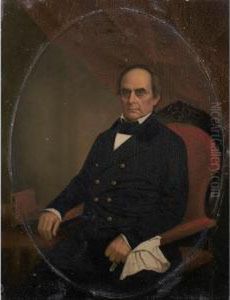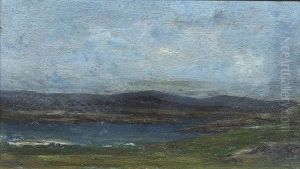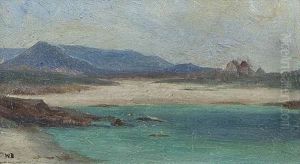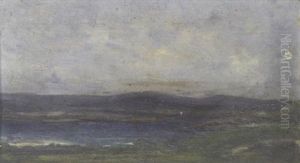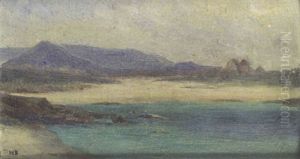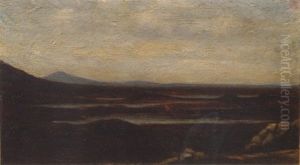William Butler Yeats Paintings
William Butler Yeats was born on June 13, 1865, in Sandymount, County Dublin, Ireland. He was not primarily known as a visual artist but as one of the foremost literary figures of the 20th century, being a significant poet and one of the leaders of the Irish Literary Revival. Yeats was deeply involved in politics and cultural affairs in Ireland, and his works reflect his broad engagement with the country’s history, folklore, and contemporary issues.
Yeats' family was artistic: his father, John Butler Yeats, was a well-known portrait painter, and his siblings were also involved in the arts. This environment fostered his love of literature and art. He spent much of his childhood in County Sligo, which would heavily influence his poetry, before relocating to London with his family. He returned to Dublin in the mid-1880s, where he met many of the prominent writers and thinkers of the day.
In his early career, Yeats was influenced by the Pre-Raphaelite movement and was involved with the Theosophical Society, reflecting his interest in mysticism and the spiritual. He co-founded the Abbey Theatre with Lady Gregory, which became the cornerstone of the Irish Dramatic movement, and he wrote many plays for the theater. His early poetic work was characterized by elaborate language and an adherence to traditional verse forms, which evolved into a more modernist approach in his later years.
As a poet, Yeats is best known for his elaborate symbolism, his themes of national identity, spirituality, and the human condition, as well as his complex personal mythology. Some of his most famous poems include 'The Lake Isle of Innisfree,' 'Easter, 1916,' 'The Second Coming,' 'Sailing to Byzantium,' and 'Leda and the Swan.' His poetry earned him the Nobel Prize in Literature in 1923, making him the first Irishman so honored.
Yeats' involvement in Irish politics was also significant. He was appointed to the Irish Senate in 1922, following the establishment of the Irish Free State, and served two terms. Throughout his life, he remained an advocate for Irish cultural and political independence.
Yeats continued to write up until his death, with his later work marked by a more personal reflection on life, death, and old age. His writing style also became more streamlined and powerful, reflecting the changes in his worldview as he aged. William Butler Yeats passed away on January 28, 1939, in Menton, France. His legacy endures through his significant contributions to poetry and Irish literature, and he is remembered as one of the greatest poets of the 20th century.
